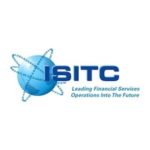FTF News caught up with Lisa Iagatta, the chair of industry standards group ISITC, to talk about T+1 and related matters.

Lisa Iagatta
(FTF News recently spoke with Lisa Iagatta, the ISITC chair for the past three years, as ISITC’s Virtual Fall Forum 2021, held earlier this month, was winding down. Iagatta touched on the T+1 shorter settlement cycle push, led by the DTCC, SIFMA, and the ICI, and looked back at her time at the helm, which will be complete by the end of this year.)
Q: So, how ready is the industry for this major step [T+1 equities settlement in one day]?
A: So, I think the industry is pretty resilient and pretty adaptable. When we were making the migration over to T+2, when we were having the working groups in the sessions … we were also smart enough, I like to say, to forecast the impact of a T+1 and possibly a T+2 migration as well.
So, I think we are ready. We’ve continued to be listening to the constituents within the marketplace to identify opportunities as well as pitfalls, and we’re looking at this not only from a technology perspective but also from an operational perspective.
You know that the SEC has reached out to a lot of trade organizations, and for the first time that I know of, the SEC actually reached out to ISITC. … They asked us our thoughts as to the migration possibly to T+1, possibly T-0 …
The SEC actually said, “We loved meeting with you.” It was a fantastic meeting; it was scheduled for an hour, and we talked for an hour-and-a-half and could have kept going.
They’d love the opportunity for us to work with them a little bit more because we do have the subject matter expertise for all the various components of the full transactional life cycle.
Q: You mentioned that ISITC surveyed its members about T+1?
So, recently we sent out a decent-sized survey to our member firms because we do cross all four constituencies: the asset managers, the global custodian banks, broker-dealers, vendors, and market utilities to get their feedback.
And it’s not just T+1, T-0, it’s also the impact across all the various groups that touch upon the full transactional life cycle.
So, we’ve gathered our results and … we’re now disseminating that information across our working groups and forums so that we can focus on what has been identified as challenges, concerns, opportunities for this possible shortened settlement cycle date.
The executive sponsors — all of whom are on our board of directors — now have the results and we’re going through them on a working group by working group basis.
So, the corporate actions folks will focus on the challenges that were identified in the survey to validate their concerns, to provide an example.
Q: Switching gears, what do you see as your biggest challenge over the past three years?
A: So, the last two years have been across the board — not just financial services — but across the board challenging. And what I think our biggest challenge has been, and it’s also our big1gest success, is the ability to be resilient, to be adaptable, to move from what historically was only an in-person series of venues, to listening to our members, and going outside of our comfort zone and creating successful virtual events.
We had never wanted to do that. We were so happy that we could say, “We’re the organization that sits together in a room. You’re next to your clients and your competitors and your prospects and you’ve got your ISITC hat on and you’re tackling challenges and problems and obstacles.”
And we had to do that, not sitting next to each other. … I think some of what we’ve learned, our adaptability to this environment — the free webinars and the opportunity to have a virtual and successful series of events — will carry forward.
Maybe not 100 percent. Ideally, I’d like to think someday we will go back to having in-person conferences, but I think we’ve learned enough that we’re not going to be short-sighted and not to take advantage of what we learned over the last two years.
Q: What do you think is your biggest achievement then?
A: I think our biggest achievement is the continued expansion of our global collaboration — it’s internal as well as external.
Our global firms are sending more and more people to participate and attend in our events, which is fantastic. There are other global organizations in which we have a lot of synergies and we’re starting to do more together.
In the past, we’ve done work with the EDM Council. This summer we did a joint webinar with ISSA [International Securities Services Association]. We’re working together on another project with SWIFT … And the SEC, the regulators there, they’re now starting to see the value that this organization brings to financial services.
Q: What advice would you give to your successor?
A: Well, to whoever fills those positions, to the chair specifically, my advice would be: you got this. You’re not on your own.
What I want to remind that person is that this is an entirely member-run organization. Everyone who is involved, whether you’re a participant, or a sponsor, or a co-chair, or a board member, everyone has another full-time day job that pays the rent.
This is a not-for-profit, volunteer, member-run organization. And the folks who are doing the work force at ISITC do it because they’ve got passion, they’ve got dedication, they’ve got accountability and commitment to the organization. So don’t feel like you must do it on your own. That’s the biggest thing, you’re not on your own.
Q: What is ISITC’s future?
 A: I think ISITC’s future is to continue to be ever-evolving: maintaining our focus on member challenges associated with standards, and data, and best practices and market practices within the financial services sector, and acknowledgement of global market changes, regulatory changes, trends.
A: I think ISITC’s future is to continue to be ever-evolving: maintaining our focus on member challenges associated with standards, and data, and best practices and market practices within the financial services sector, and acknowledgement of global market changes, regulatory changes, trends.
God knows what’s coming down the pike tomorrow: the possibility or the certainty of the shortened settlement cycle, the impact of DLT/blockchain, digital assets, DeFi [decentralized finance] — you name it.
ISITC’s future is to continue to remain pertinent and relevant in this ever-changing environment.
(Editor’s note: As of this writing, ISITC’s Winter Forum, December 5-7, 2021, in Fort Lauderdale, Fla., is slated to be an in-person event – the organization’s first such event since the global pandemic hit in 2020.)
Need a Reprint?